
Marcus Maher
Libraries
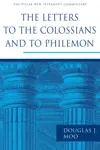

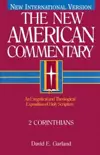



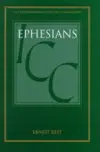

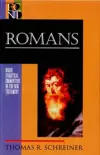

![Colossians, Philemon [Withdrawn]](https://cdnbestcommentaries.r.worldssl.net/images/bookthumbs/4019-thumb.webp)
![Colossians, Philemon [Withdrawn]](https://cdnbestcommentaries.r.worldssl.net/images/bookthumbs/4019-thumb.webp)


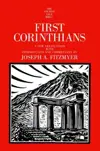



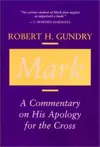

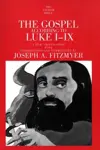


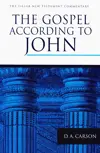

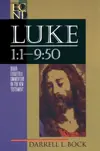


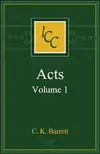


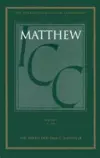


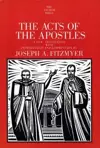

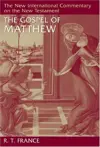



Reviews
The work is very mature. Few commentators show the depth and breadth of their command of the material as clearly as Cranfield does, while at the same time avoiding bogging down the reader with unnecessary interpretive options. He knows which views to dismiss and which to discuss while providing compelling reasons for the position he opts for. This not only makes the job of the reader easier, it also keeps the work reasonably concise, which is a very difficult task when writing a commentary on Romans.
On grammar, no one is better than Cranfield. I don’t think this is even open for argument (despite what I believe to be the helpfulness of Jewett in this area).
As an added bonus, he is profoundly theological at times. This is a rarity in advanced commentaries, since that is not their primary task. I often found that his insight was even more penetrating than Moo. This is one of the main reasons why I still highly recommend this commentary even when you consider that Jewett’s commentary is 30 years newer and overlapping in many respects. Jewett generally does not reflect theologically (and when he does, he’s usually wrong), where Cranfield does at most of the key junctures, and his insight is excellent and helpful in the homiletical task. Overall this is an excellent work by Cranfield. In some ways the timing of it, being right before the birth of the New Perspective on Paul, is unfortunate, in that Cranfield does not get to weigh in on the debate here. On the other hand, its timing is a blessing in disguise, as it remains unencumbered with that debate (not that I find that the debate has been unhelpful and not that Cranfield’s commentary wouldn’t have benefited, but it is refreshing to read a Romans commentary that does not have the shadow of Sanders, Dunn, and Wright looming over it as e.g., Moo’s and Schreiner’s often do). If your Greek is up to it (and honestly, even if it isn’t give it a try) I fully endorse this commentary. It pairs well with Schreiner and Jewett.
Things I liked:
Jewett gives, by far, the most helpful and most thorough background to Romans. It was not merely information for information’s sake. He did an excellent job of showing the impact of the background (especially the section on Spain) on the interpretation of the text.
The structural comments and discussion of rhetorical features was impeccable. Jewett was thorough and well argued. I appreciated this because it made his results testable. He then uses his rhetorical analysis to drive his exegesis.
No commentary on Romans is as thorough in textual criticism. Jewett attempted to give every single variant found in the manuscript tradition for Romans, his assessment of its originality, and what may have been the cause for the variant (e.g., scribal error, ideological alteration, etc.).
Jewett is also thorough on issues of grammar and lexicography, sometimes even more so than Cranfield. For a commentary whose focus isn’t on grammar, the amount of information you get is generous.
Criticisms:
Jewett states that theologizing is not his goal in writing the commentary, and I understand that. That does not need to be the goal of the commentary. I feel at times, though, that his interpretation went astray because he did not consider the theological framework of the text. This led to an overly situational reading of Romans.
He could have done without using feminine pronouns to refer to God the Father.
Overall Evaluation:
I give Jewett 4.5 stars. The vast majority of the commentary is extremely helpful. As a technical aid to the text one could not find a better commentary (even Cranfield’s). If he had framed things a bit more theologically, it would have received a fill five stars. Pair it with Schreiner and you’ll be off to an excellent start in studying Paul’s letter to the Romans.
Things I liked:
The background information in the Habakkuk commentary was outstanding. I particularly enjoyed the discussion of how Habakkuk fit in with the rest of the Minor Prophets. Bailey clearly explained how the Minor Prophets fit together with Habakkuk as the climax of the crisis in the overall plot sketched by the post exilic editor.
Bailey does draw heavily on the work of other scholars. Even though it isn’t the longest commentary out there, I felt that I got a good survey of what scholarship is saying on Habakkuk.
Bailey grasps the theology of Habakkuk very well. I gained clearer insight into the attitude of Habakkuk and how he interacted with God.
Things I didn’t like:
I would have liked a little more help on the grammar. I find the NAC inconsistent on this issue. Some have a substantial amount of footnotes dealing with grammatical issues, some don’t. I would have liked more here.
Pretty much everything about the Micah commentary by Barker. It was short, had little technical help, and was uninspiring.
Conclusion:
If you’re looking for a commentary on Micah, look elsewhere (especially Leslie Allen in the NICOT). If you want a good commentary on Habakkuk (and I assume Nahum and Zephaniah) this would be a good place to start. Bailey possesses the brevity and clarity that all commentators would do well to imitate, and his exposition is enriching, as he forces you to wrestle with the issues, just like Habakkuk did. As an added bonus, Bailey provides you with a wealth of information in the introduction sections. I give Barker 2 stars and Bailey 4.5 stars, so I guess the book gets 4 stars as a whole.
Things I liked:
O’Brien does an excellent job of drawing from other scholars who previously written or commented on the book (especially Lincoln, Bruce, and Clinton Arnold). He seems to take the best from each without getting sucked into their weak points. It is not a commentary on commentaries, however. O’Brien frequently picks up others’ arguments and advances them much further and more coherently than they ever did.
O’Brien’s defense of Pauline authorship is formidable. I especially appreciate the way he handled the section on the alleged use of Colossians by Ephesians. It certainly is not a straightforward dependence, if there is any.
He also seems to know what pastors need in a commentary. Some commentaries major in lexicology (e.g., Quinn and Wacker on the Pastorals); others in background issues and rhetorical analysis (e.g., Ben Witherington on anything); other still in issues of grammar (e.g., Cranfield on Romans). While all of this information is extremely valuable, often times pastors don’t have time to read a half dozen commentaries to ‘get a bit of this and a bit of that.’ O’Brien does a good job of drawing on the most relevant information from different approaches to the text providing the busy pastor with the closest you can come to a one stop shop.
In agreement with what other reviewers have said, O’Brien is very theologically astute. He understands the implications of his well nuanced positions very clearly. His work on chapter 2 is perhaps the best I have seen by any commentator on any chapter of scripture (although his work on Philippians 2 is also outstanding). It’s clear, thorough, impacting, well supported, and follows the flow of the text beautifully. If there is one weakness I frequently see in commentators, it is that they fail to see how their argument fits into the whole letter. This does not happen to O’Brien.
Also, the section on the armor of God was always a bit enigmatic to me. I did not see before why Paul would ever end his epistle with it. O’Brien’s explanation of how it fit within the wider purposes of Ephesians was very helpful.
Criticisms:
I wish O’Brien had done his own translation of the text. Looking at the scholar’s translation up front serves as a quick summary of the conclusions they draw through their exegesis. Also it sometimes helps you more fully grasp their arguments.
This is minor, but I would have liked a more formidable defense of ‘shod your feet with the preparation of the gospel of peace’ being interpreted as a call to missionary activity. It is not an impossible interpretation, but it does not seem to me to be an obvious one.
Overall Evaluation:
O’Brien’s commentary is outstanding. I cannot more wholeheartedly recommend it. His writing is powerful, clear, and concise, and his analysis incisive; making him eminently quotable. This commentary stands head and shoulders above the rest.
Things I liked:
The key to a top notch academic commentary is fairness to opposing views. While not afraid to dismiss irrelevant views, Best does fairly represent his opponents and attempts to show (mainly through grammatical arguments) why their view is, in his opinion, defective. His commentary often proved to be a refreshing corrective to some of the overblown analysis of Lincoln, who sees preformed material seemingly in every section.
Best showed the structure of each section in his translation to help the reader clearly see Paul’s (or AE’s as Best likes to put it) flow of thought. This was very helpful as a quick reference when doing my exegesis. The rest of the commentary served as a defense of the translation and diagram. I also enjoyed his witty writing style. I even found myself chuckling at the way he would phrase things sometimes.
Best almost always takes the plain sense of the text, even when he doesn’t like the conclusions. This is especially clear in his discussion of the household code. In particular, I found Best’s analysis of chapters 1-4 to be very insightful. His arguments were clear and often persuasive. Particularly excellent were his discussions of the spiritual powers that are mentioned from time to time in Ephesians. I also liked his analysis of 2:1-10. I think he gives the best one sentence summary of the section that I have read when he says, “The new position of believers is a result only of the nature and activity of God.”
Criticisms:
Evangelicals will be bothered by his approach to chapters 5 and 6. He borders on contempt for the text at times, especially when he disagrees with it or finds it lacking, which is often.
While mounting as formidable a case as is possible, his argument against Pauline authorship is inadequate. He must be credited though with avoiding the specious argument of dependence of Ephesians on Colossians (or vice versa) and using the criteria of hapax legomena for determining authorship. Still, his insistence (along with many other scholars) on the existence of a Pauline school is baffling, and the differences in vocabulary, content, and style are not as significant as Best seems to believe. See O’Brien and Hoehner for outstanding defenses of Pauline authorship.
Overall Evaluation:
We have come to expect excellence from the International Critical Commentary and this commentary meets those expectations. It is the work of a careful scholar who labored over Ephesians for decade after decade. It provides a wealth of information that would benefit anyone doing a thorough study of Ephesians who knows at least a little bit of Greek. The commentary is overly critical at times, but that is not surprising given the series it’s in. I rate it four stars out of five.
